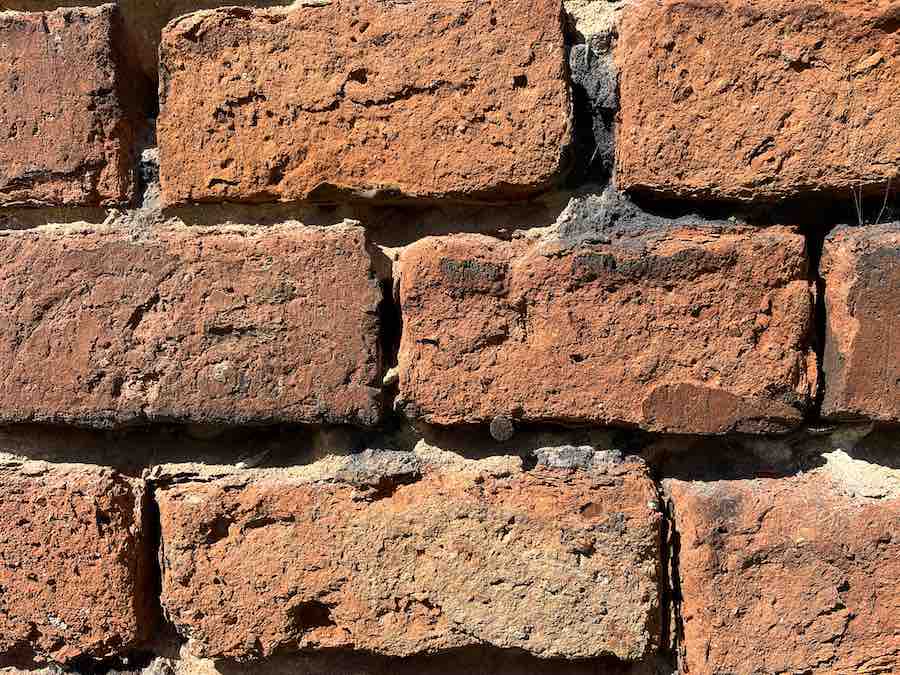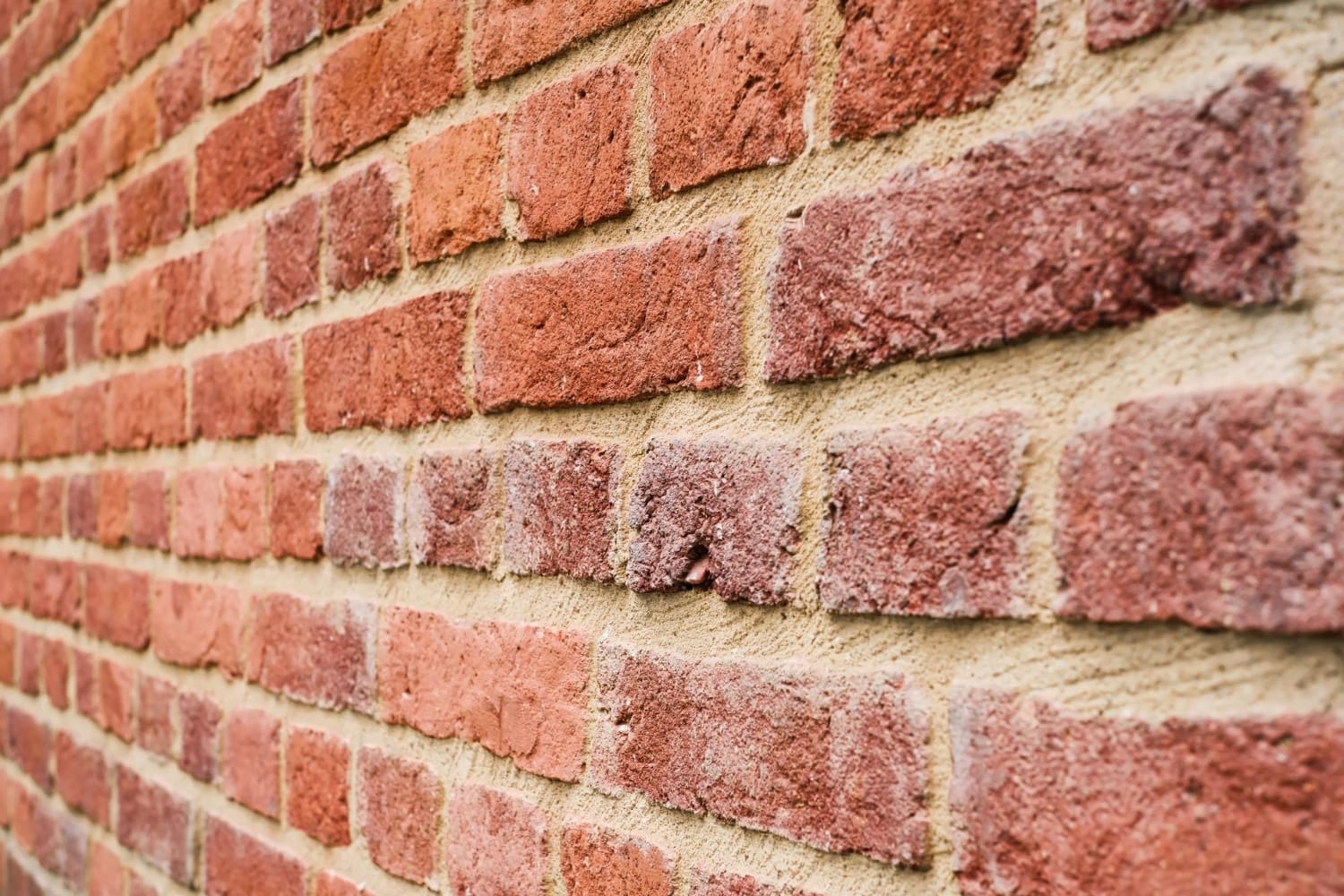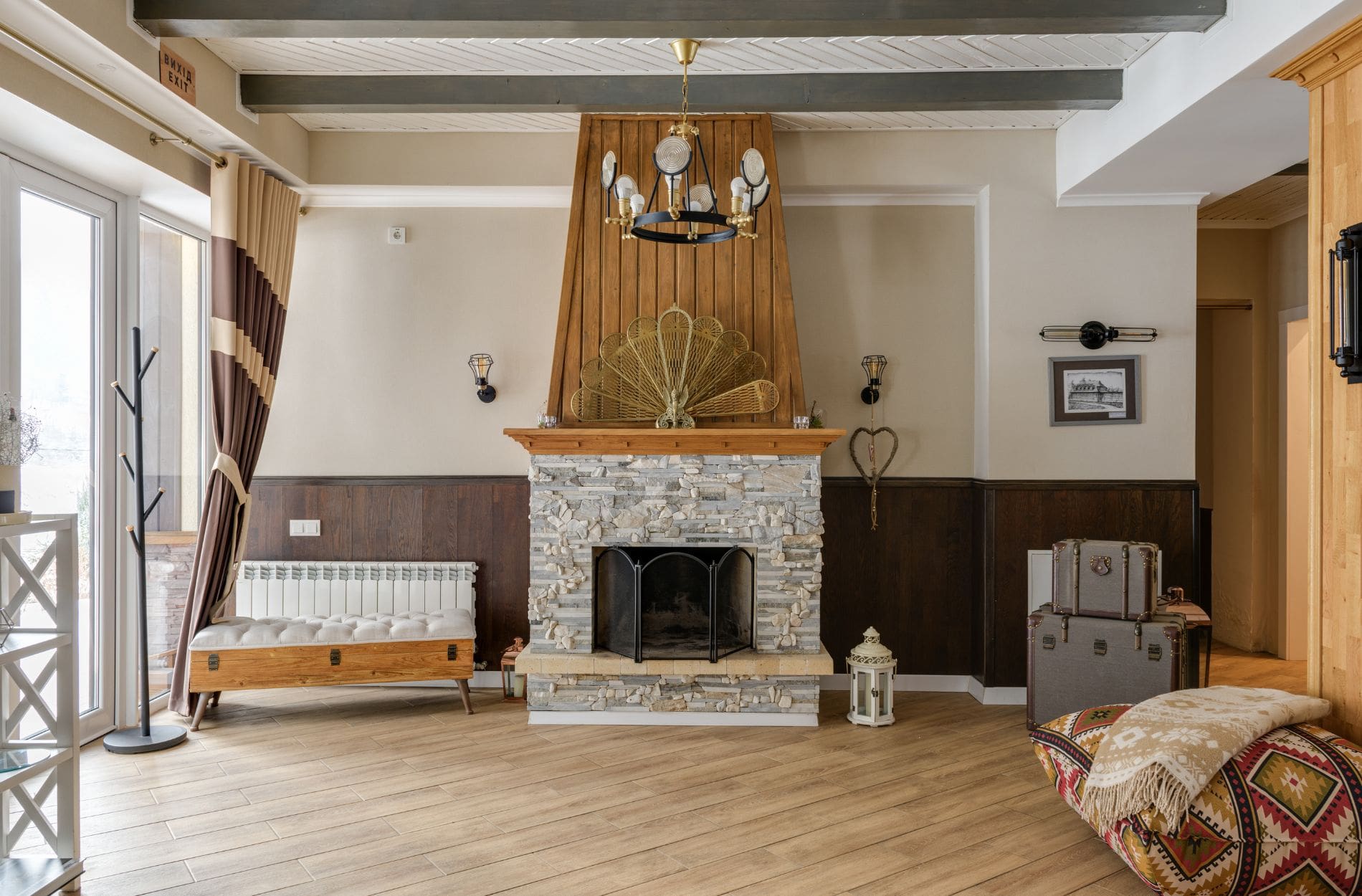Why Brick Deteriorates? 4 Common Causes of Brick Deterioration

If you’re a homeowner with masonry on your property, you may have noticed some damage or deterioration of your brick structures. Have you ever wondered why brick deteriorates? Understanding the causes of brick damage can help you identify when to call a professional for repairs.
By taking a closer look at the various elements that contribute to brick deterioration, you can better assess the condition of your masonry and take the necessary steps to protect your property. In this blog post, we will explore the different reasons why brick deteriorates and what you can do about it.
What Are Bricks Made of?
Brick has been used as a building material for centuries, and its composition is crucial to its durability. Understanding the composition of bricks can help homeowners better grasp why they deteriorate over time. Bricks are typically made from clay and shale, which are mixed together and molded into the desired shape. The clay acts as a binder, holding the particles together, while the shale provides strength and stability.
However, the composition of bricks can vary depending on the manufacturer and the specific purpose of the bricks. Some bricks, such as sand or limestone, may contain additives or aggregates to enhance their properties. The firing process used during brick production can also affect their composition. Bricks are typically fired at high temperatures, which causes the clay particles to fuse together, creating a strong and durable structure.
Despite their solid composition, bricks are still susceptible to deterioration. Factors such as weather exposure, moisture infiltration, and physical damage can all contribute to the degradation of bricks over time. Understanding the composition of bricks allows homeowners to assess the condition of their masonry better and determine the best course of action for repairs or maintenance.
In the next section, we will delve into why brick deteriorates, exploring how environmental factors and human actions can impact the integrity of bricks. By understanding these causes, homeowners can proactively protect their brick structures and ensure their longevity.
4 Common Causes of Brick Deterioration
Brick deterioration can occur due to a variety of factors. Understanding these common causes can help homeowners identify issues early on and take the necessary steps to protect their masonry.
Here are four reasons why brick deteriorates:
1. Low-quality Bricks and Workmanship
Low-quality bricks and poor workmanship during construction are common causes of brick deterioration. When bricks are not properly made or installed, they are more susceptible to damage and deterioration over time.
Bricks made with low-quality materials or improper firing processes may have weaker structures, making them more prone to cracking and crumbling. Similarly, if the bricks are not installed correctly or if the mortar joints are improperly mixed, it can lead to water penetration and accelerated deterioration.
It is important to ensure that high-quality bricks are used and that skilled professionals do the construction to prevent these issues and maintain the integrity of your brickwork.
2. Moisture
Excessive moisture is one of the leading causes of why brick deteriorates. When bricks are exposed to water for extended periods of time, the water can seep into the brick and weaken its structure. This can lead to cracks, crumbling, and even mold growth.
Moisture can come from a variety of sources, such as:
- Rain
- Sprinkler systems
- Poor drainage
To prevent moisture damage, ensure that your bricks are properly sealed and waterproofed.
Additionally, regular maintenance and inspection can help identify any areas where moisture may be infiltrating and allow for prompt repairs. By taking proactive measures to prevent moisture damage, you can prolong the lifespan of your bricks and maintain the beauty and integrity of your home.
3. Painting
Painting brick structures may seem like a good idea to enhance their appearance, but it can actually contribute to why brick deteriorates over time. Many homeowners paint their bricks for aesthetic purposes, not realizing the potential harm painting can cause.
The main issue with painting bricks is that it prevents them from breathing. Bricks are porous and naturally allow moisture to escape through evaporation. However, when you paint them, you create a barrier that traps moisture inside.
This trapped moisture can lead to deterioration, including:
- Cracking
- Spalling
- Efflorescence
Furthermore, removing paint from bricks is a challenging and expensive process. Once paint has been applied, it seeps into the porous surface of the bricks, making it difficult to remove completely. It often requires sandblasting or harsh chemicals, which can further damage the bricks.
If you want to enhance the appearance of your brick structures, consider alternatives to painting. Breathable sealants can protect your bricks from water damage without compromising their ability to breathe. These sealants allow any moisture that penetrates the surface to evaporate, preventing long-term damage.
Overall, it is important to think twice before painting your brick structures. It may seem like a quick fix, but it can lead to more problems down the road. Consider alternative options and consult with a professional to ensure you are making the best decision for the longevity and integrity of your bricks.
4. Incorrect Cleaning Methods
Using incorrect cleaning methods can be detrimental to the health and longevity of your bricks. Harsh chemicals or abrasive materials can strip away the protective layer on the surface of the bricks, making them more susceptible to damage and deterioration.
Similarly, power washing with excessive pressure can cause cracks or erosion in the bricks. It is important to use gentle cleaning solutions and techniques that are specifically designed for masonry surfaces.
This will help preserve the integrity of the bricks and prevent unnecessary wear and tear. Regular, gentle cleaning can keep your bricks looking their best while ensuring their long-term durability.
How to Prevent Brick Deterioration?
Protecting your brick structures from deterioration requires proactive maintenance and careful prevention measures. Here are some steps you can take to prevent brick deterioration and maintain the integrity of your masonry:
- Regular Inspections: Conduct regular inspections of your brick structures to identify any signs of damage or deterioration early on. Look for cracks, crumbling, or any other visible issues. Promptly addressing these issues can prevent further damage and costly repairs down the line.
- Proper Drainage: Ensure that your property has proper drainage systems in place to redirect water away from your brick structures. Poor drainage can lead to water pooling around your bricks, causing moisture infiltration and deterioration. Clear out gutters and downspouts regularly, and consider installing a French drain or other drainage solutions if needed.
- Sealing and Waterproofing: Apply a high-quality brick sealant or waterproofing agent to your bricks to create a protective barrier against moisture infiltration. This will help prevent water damage and extend the lifespan of your bricks. Consult with a professional to determine the best sealing or waterproofing products for your specific needs.
- Avoid Harsh Cleaning Methods: Use gentle cleaning solutions and techniques specifically designed for masonry surfaces. Avoid harsh chemicals or abrasive materials that can strip away the protective layer on the surface of the bricks. Regular, gentle cleaning can remove dirt and debris without causing unnecessary wear and tear on your bricks.
- Maintain Proper Grouting: Check the condition of the mortar joints between your bricks regularly. Cracked or deteriorating grout can allow moisture to penetrate the brickwork, leading to further damage. Repair or replace any damaged grouting to ensure the integrity of your brick structures.
- Professional Repairs: If you notice any signs of deterioration or damage, such as cracks, crumbling, or efflorescence, it is important to consult a reliable masonry repair professional. They will assess the situation and provide the necessary repairs to prevent further deterioration.
By following these preventive measures and staying proactive in your maintenance efforts, you can ensure the longevity and beauty of your brick structures.
Protecting your bricks from deterioration will not only enhance the aesthetic appeal of your property but also maintain its value and structural integrity for years to come.
Choosing a Reliable Masonry Repair Professional
Finding a reliable masonry repair professional can be a daunting task, but it’s essential to ensure the longevity and beauty of your brickwork.
Look for professionals who have extensive experience in masonry repair and a proven track record of quality work.
Ask for referrals from friends, family, or neighbors who have had similar repairs done. Additionally, research online reviews and ratings to get an idea of their reputation.
When you reach out to potential professionals, ask about their certifications and licenses, as well as their insurance coverage. This will help you narrow down your options and choose a professional you can trust to restore your brickwork to its former glory.





